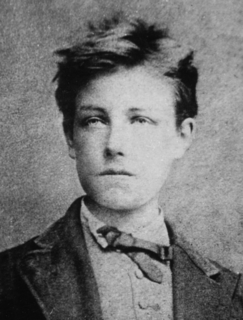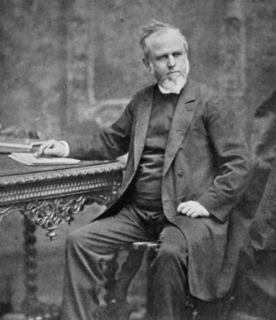A Quote by Horace
Deep in the cavern of the infant's breast; the father's nature lurks, and lives anew.
Related Quotes
Fear is like a black cavern that is terrifying. Once you enter the cavern and explore it, you realize that you can get out of it, go through it and get out of it. Then there's another cavern that is just as big and terrifying, and you just go in and dwell in it and see what is the worst that can happen.
Cruelty, very far from being a vice, is the first sentiment Nature injects in us all. The infant breaks his toy, bites his nurse's breast, strangles his canary long before he is able to reason; cruelty is stamped in animals, in whom, as I think I have said, Nature's laws are more emphatically to be read than in ourselves; cruelty exists amongst savages, so much nearer to Nature than civilized men are; absurd then to maintain cruelty is a consequence of depravity. . . . Cruelty is simply the energy in a man civilization has not yet altogether corrupted: therefore it is a virtue, not a vice.
When the death of a disabled infant will lead to the birth of another infant with better prospects of a happy life, the total amount of happiness will be greater if the disabled infant is killed. The loss of happy life for the first infant is outweighed by the gain of happier life for the second. Therefore, if killing the hemophiliac infant has no adverse effect on others, it would, according to the total view, be right to kill him.
A meditator cannot smoke, for the simple reason that he never feels nervous, in anxiety, in tension. Smoking helps - on a momentary basis - to forget about your anxieties, your tensions, your nervousness. Other things can do the same - chewing gum can do the same, but smoking does it the best. In your deep unconscious, smoking is related with sucking milk from your mother's breast. And as civilization has grown, no woman wants the child to be brought up by breast-feeding - naturally; he will destroy the breast. The breast will lose its roundness, its beauty.
Can I see another's woe, And not be in sorrow too? Can I see another's grief, And not seek for kind relief? Can I see a falling tear, And not feel my sorrow's share? Can a father see his child Weep, nor be with sorrow filled? Can a mother sit and hear An infant groan, an infant fear? No, no! never can it be! Never, never can it be!






































